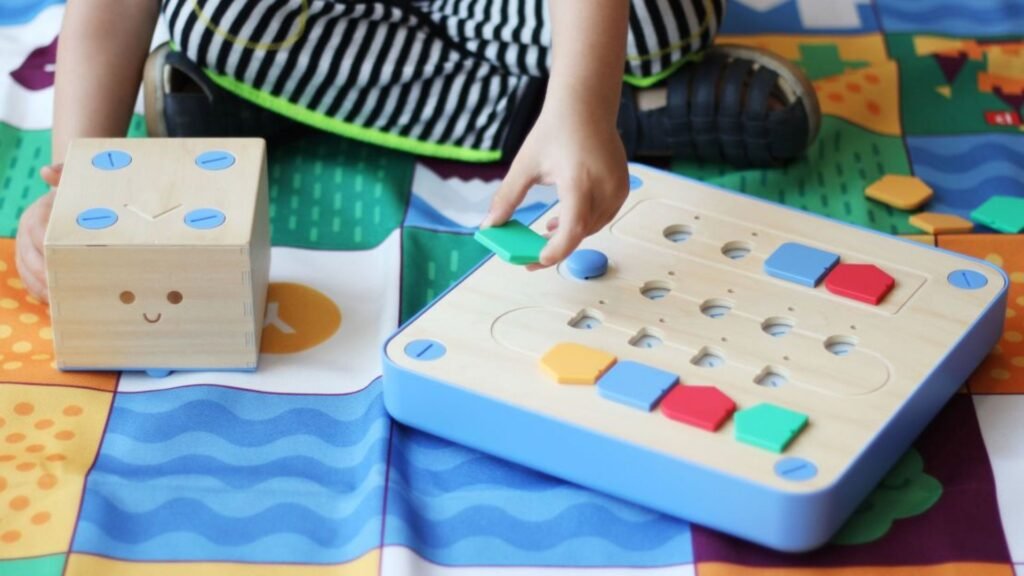As the job market continues to evolve rapidly, it’s essential to equip children with the skills and mindset they need to succeed in an unpredictable future. The rise of automation, artificial intelligence, and global connectivity is transforming industries, creating new career opportunities, and rendering some traditional jobs obsolete. Preparing children for this dynamic landscape requires a focus on adaptability, lifelong learning, and the development of key skills that will remain relevant despite technological advancements. This article explores strategies to help children thrive in the future job market.

Cultivating Adaptability and Resilience
Encouraging a Growth Mindset
A growth mindset is the belief that abilities and intelligence can be developed through effort, learning, and perseverance. Encouraging children to embrace challenges, learn from mistakes, and persist in the face of setbacks fosters resilience. This mindset is crucial in a job market where adaptability is key, as it enables children to continuously improve and adapt to new circumstances.
Promoting Problem-Solving Skills
Problem-solving is a critical skill for the future job market, where unexpected challenges and complex issues will be common. Parents and educators can encourage problem-solving by presenting children with scenarios that require creative thinking and collaboration. Activities such as puzzles, team projects, and open-ended questions help children develop the ability to think critically and find innovative solutions.
Teaching Emotional Intelligence
Emotional intelligence (EQ) involves understanding and managing one’s emotions, as well as empathizing with others. In a future where collaboration across diverse teams will be increasingly important, high EQ will be a valuable asset. Teaching children to recognize their emotions, communicate effectively, and build strong interpersonal relationships will prepare them for the social aspects of the workplace.
Fostering Lifelong Learning and Curiosity
Encouraging Continuous Learning
The future job market will demand continuous learning and upskilling. Children should be encouraged to view education as a lifelong process rather than something that ends with formal schooling. Parents and educators can promote lifelong learning by exposing children to a variety of subjects, encouraging curiosity, and providing opportunities for self-directed learning, such as online courses or educational apps.
Exposing Children to Technology and Digital Literacy
As technology plays an increasingly central role in the job market, digital literacy is essential. Children should be comfortable using technology, from basic computer skills to understanding coding and data analysis. Introducing children to age-appropriate technology, such as coding games or robotics kits, helps build their digital literacy and prepares them for tech-driven careers.
Supporting Exploration of Diverse Interests
Encouraging children to explore a wide range of interests allows them to discover their passions and strengths. Whether it’s art, science, sports, or technology, fostering diverse interests helps children develop a well-rounded skill set and opens up various career possibilities. Extracurricular activities, hobbies, and exposure to different fields can help children identify what they enjoy and where they excel.
Developing Key Skills for the Future
Emphasizing STEM Education
Science, Technology, Engineering, and Mathematics (STEM) fields are expected to continue growing in importance. Developing strong STEM skills from an early age can open doors to a wide range of career opportunities in the future. Encouraging participation in STEM activities, such as coding clubs, science fairs, and math competitions, can help children build confidence and interest in these critical areas.
Enhancing Communication Skills
Effective communication is a fundamental skill that will remain relevant regardless of technological advancements. Children should be encouraged to develop strong verbal and written communication skills, as well as active listening abilities. Activities like public speaking, writing essays, or participating in debates can help children articulate their ideas clearly and confidently.
Building Collaborative and Teamwork Skills
Collaboration will be a cornerstone of future work environments, where teamwork across disciplines and geographies will be common. Children should learn to work effectively with others, appreciate different perspectives, and contribute to group efforts. Group projects, team sports, and collaborative learning activities help children develop the teamwork skills essential for future success.
Conclusion
Preparing children for the future job market requires a multifaceted approach that goes beyond traditional education. By cultivating adaptability, fostering lifelong learning, developing key skills, nurturing creativity, and preparing for global citizenship, parents and educators can equip children with the tools they need to thrive in a rapidly changing world. As the job market continues to evolve, the focus should be on developing well-rounded individuals who are not only ready to succeed in their careers but are also capable of contributing positively to society.

